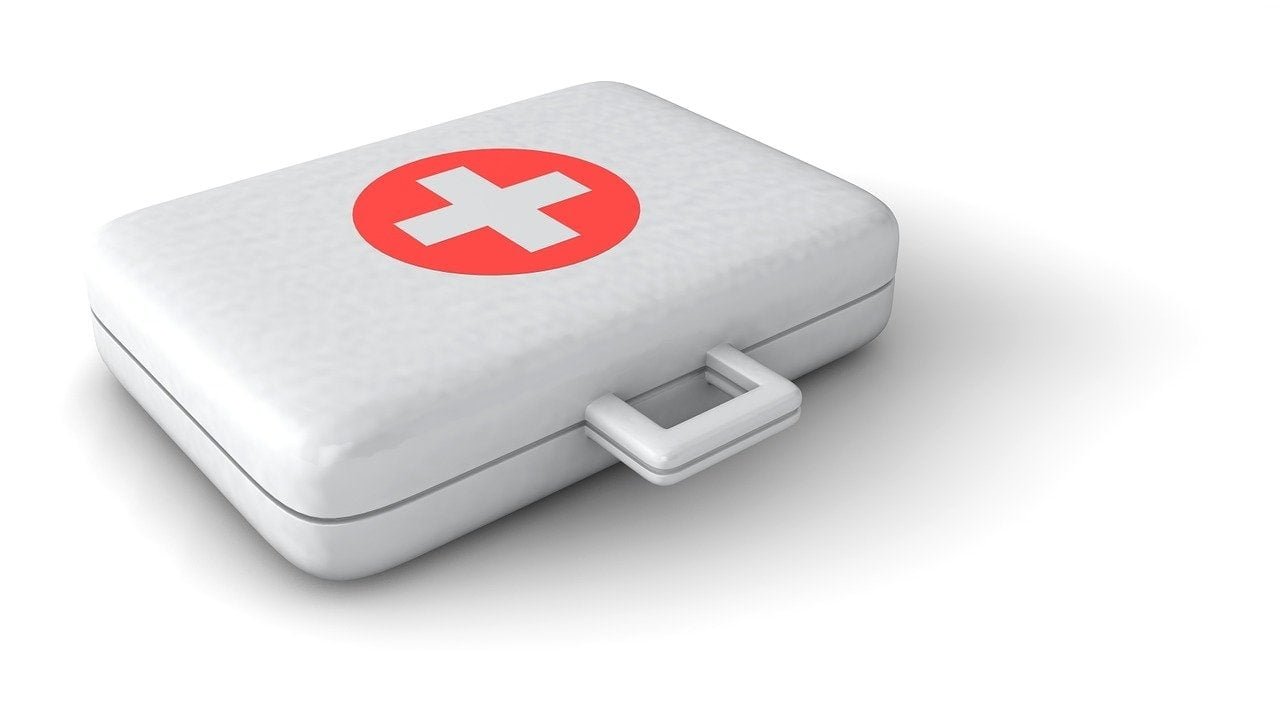Medication to Bring During Holidays
Going on vacation soon? Don’t forget to bring your medications. Here are some tips on which medications to bring during holidays, whether you’re traveling locally or abroad. This guide provides key advice on choosing the right medications for your trip to keep you healthy and prepared.
Remember, your health is a priority when traveling. Learn what to consider before your trip to maintain optimal health during your travels.
How to prepare your travel medicine kit?
Are you going on a trip soon and wondering which medications, medical documents, and care supplies you’ll need to bring? Always make sure your travel medicine kit is accessible, especially during long flights or journeys, and keep it well-stocked and ready for your next adventure.
Also, ensure to check the expiry dates of your medications to maintain their effectiveness.
Here are some tips to ensure you don’t forget anything, depending on your destination and health condition.
HEALTH: WHAT TO CONSIDER BEFORE A TRIP?
A trip begins with its preparation, and various steps need to be planned several weeks before departure.
- Visit your dentist, especially if you have chronic dental issues (like gingivitis) or recurrent problems (such as cavities or abscesses).
- Make sure you have a blood group card and an international vaccination booklet for destinations outside your country.
- Ensure you have a medical report (in English) if you suffer from a chronic illness.
- Request a health insurance card if you are traveling within the relevant area.Take out medical repatriation insurance.
Plan for all the necessary things to be able to:
- continue your usual treatments away from home.
- treat injuries and minor ailments.
- prevent certain infectious or parasitic diseases, especially those transmitted by mosquitoes (e.g., malaria).
There is no one-size-fits-all travel kit. The packing list depends on:
- your current health status and medical history.
- your destination (e.g., rural or urban area) and its characteristics (permanent presence of certain infectious diseases, precarious hygiene conditions, difficulty accessing medical care, etc.).
- the time of your stay (for example, dry or wet season) and its duration.the type of trip you’re undertaking (business or tourism, individual or group, organized or “adventure”) and your accommodation conditions.
What vaccinations before traveling abroad?
Before a trip, several vaccines may be necessary, such as for diphtheria, tetanus, polio, hepatitis A, hepatitis B, meningococcal C, yellow fever, and typhoid fever. Additionally, consider vaccinations for influenza and rabies, depending on your destination and planned activities.
Their requirement depends on:
- the administrative obligations of each country.
- the actual risks, based on the health situation at your destination at the time of your departure.
To update or get required vaccinations, consult your doctor or visit a tropical medicine center. Ideally, this should be done 4 to 6 weeks before departure to ensure vaccine effectiveness.
WHAT ESSENTIAL MEDICAL EQUIPMENT SHOULD BE INCLUDED IN A TRAVEL FIRST AID KIT?
Plan for treating minor injuries and preventing certain risks, meaning:
- A water-and-alcohol-based hand sanitizer for disinfecting hands when water and soap are unavailable.Sterile gauze and bandages, including hemostatic pads to help stop bleeding from cuts.
- A cream to soothe sunburns, in addition to high SPF (50+) sunscreen.
- Hydrogel dressings (or “interface”) for burns and oozing skin wounds. Depending on the climate and weather conditions of your destination, be mindful of storage conditions for these dressings as they may have heat or humidity restrictions.
- Adhesive strips (for proper healing of cuts).A compressive bandage (for treating a sprain or holding a dressing in place), a pair of scissors, and a safety pin for attachment.
- Tweezers (for removing splinters) and a tick remover (for removing ticks).
- A thermometer.
- Compression stockings or socks if you’re flying and/or have a condition predisposing you to the risk of phlebitis.
- Male or female condoms to prevent sexually transmitted infections (STIs).
Additionally, consider including antiseptic wipes for quick disinfection, pain relief medication for headaches or fevers, and anti-diarrheal medicine, as gastrointestinal issues are common while traveling. Always check the storage requirements and expiry dates of all items.
Read also: Bali for First Timers: The Ultimate Guide to Adventure, Relaxation & Culture
ESSENTIAL MEDICATIONS TO PACK FOR TRAVEL
It’s advisable to carry various types of medications in your luggage. In any case, bring products you are familiar with (indications, dosages) in their original packaging (not loose), especially to be able to read the instructions if necessary.
Here are some essential items to consider:
- Anti-nausea medication for motion sickness, like Dramamine or Bonine.
- Topical antiseptic such as Neosporin or Betadine for cuts and scrapes.
- Pain relievers (analgesics) like Tylenol (acetaminophen) or Advil (ibuprofen) and fever reducers (antipyretics).
- Anti cough, cough suppressant, or expectorant.
- Allergy medications such as Benadryl (diphenhydramine) for mild reactions and EpiPen (epinephrine auto-injector) for severe allergies.
- Anti-diarrheal medication like Imodium (loperamide) for travel-related gastrointestinal issues.
- Rehydration salts or solutions like Oral Rehydration Salts (ORS) or DripDrop to combat dehydration, especially useful in case of diarrhea or high heat environments. These can quickly restore electrolyte balance and prevent dehydration.
- Laxatives for constipation relief in a travel kit, such as Dulcolax (bisacodyl).
- Eye drops and saline solution in single-use vials, like Systane or Saline Plus.
- Antifungal and antibacterial creams such as clotrimazole or mupirocin to treat minor skin infections.
- Insect repellent with DEET, picaridin, or lemon eucalyptus oil to prevent insect bites.
- Sunscreen with high SPF to protect against sunburn and skin damage.
- Aloe vera gel or cooling lotions for after-sun care.
- Antacid like Tums or Ranitidine for indigestion or heartburn.
- Sleep aids such as melatonin or unisom, especially for those experiencing jet lag.
- Nasal spray like saline solution to combat dry airplane air.
- Multivitamins to supplement your diet in case you’re not getting enough nutrients.
- Personal prescription medications with a copy of the prescription and a letter from your doctor, especially for controlled substances or injectable medications.
Keep medications in original packaging for easy access to dosage info and to avoid customs issues. Check medication legality in your destination, as some over-the-counter drugs may be controlled substances abroad.
Read also: Travelers Diarrhea, How to Avoid and Treat Bali Belly?
RECOMMENDED MEDICATIONS FOR SPECIFIC TRAVEL-RELATED RISKS
Depending on the area you’ll be staying in, you may need specific products:
- Tablets or filters to purify water.
- Oral rehydration sachets or tablet.
- Products to prevent malaria and other mosquito-borne diseases, such as antimalarial medication or insect repellent containing DEET or picaridin.
- A website to prepare for your trip based on your destination. You can consult the “Travel Advice by Country” page on their website.
Additionally, consider:
- Vaccination certificates for diseases like yellow fever, if required by your destination.
- High SPF sunscreen to protect against harmful UV rays.
- A basic first-aid kit including bandages, antiseptic wipes, and blister plasters.
- Disposable gloves.
- Information on the nearest embassy or consulate for emergency assistance.
SOME TRAVEL TIPS IF YOU ARE ON REGULAR MEDICATION
If you regularly take certain medications (for example, to treat high blood pressure, diabetes, etc.), consult your doctor before leaving. This will allow you to properly prepare for your trip and to inquire about several points.
- Always consult your doctor before your trip.
- Organize yourself to have enough medication for the trip and adjust to the time difference.
- Carry your medications safely and legally.
- Store and use your medications in very hot and very cold weather.
- Plan for refills: investigate options for refilling prescriptions abroad if you’ll be traveling for an extended period.
- Carry a medication list: have a list of all medications you’re taking, including generic names, which can be helpful if you need to consult a doctor or pharmacist abroad.
- Seek medical advice for a stay abroad of more than 1 month and less than 6 months.
Why informing a trusted contact about your travel and health plans matters?
Informing a relative or someone you trust about your travel plans, especially when you’re on regular medication, serves multiple purposes:
- Emergency contact: They can act as an emergency contact, providing critical information to medical personnel if you’re unable to communicate.
- Medication details: sharing details of your medication, including dosages and the names of the prescriptions, ensures someone else knows what you’re taking in case you need assistance obtaining more or explaining your needs to healthcare providers.
- Health conditions: informing them about your health conditions allows them to better advocate for your needs in an emergency.
- Travel itinerary: sharing your travel itinerary helps them keep track of your whereabouts, which is especially important in case of health emergencies or if you need assistance remotely.
- Peace of mind: for both you and your trusted contact, knowing there’s a communication plan in place can provide peace of mind during your travels.
This simple step can make a significant difference in managing your health effectively while traveling and ensuring help is readily available if needed.
Important Numbers in Bali | Essential numbers and addresses + Emergency Numbers
ADVICE
When flying, check airline rules for carry-on container sizes. Split medications between cabin bags and checked luggage for easy access and backup.
Include prescription medications and verify their legality in your destination to avoid legal problems. Contact the embassy for guidance on restricted or banned drugs abroad.
Remember, this kit is for minor issues and emergencies. For anything more serious, seek professional medical attention.
Always prioritize your health and well-being, and have a contingency plan for medical care while abroad.
Sources: CleverlySmart, PinterPandai, John Hopkins, Cleveland Clinic
Photo credit: Peggy_Marco via Pixabay


